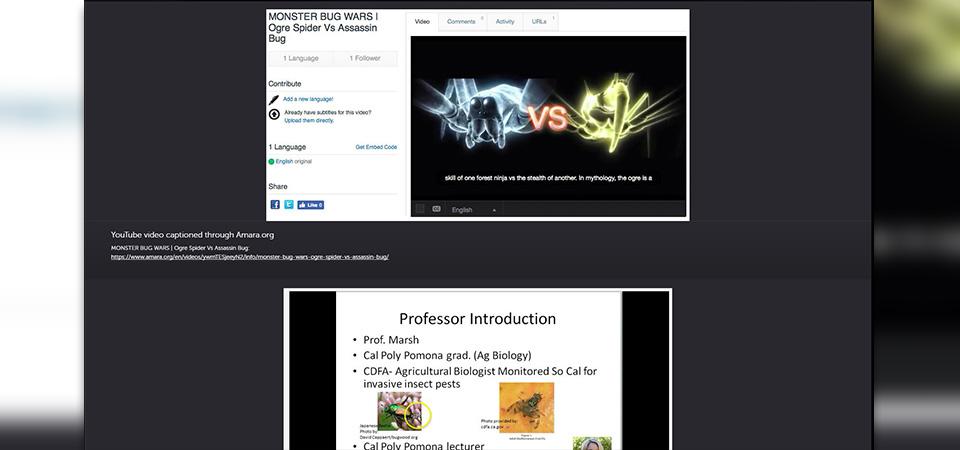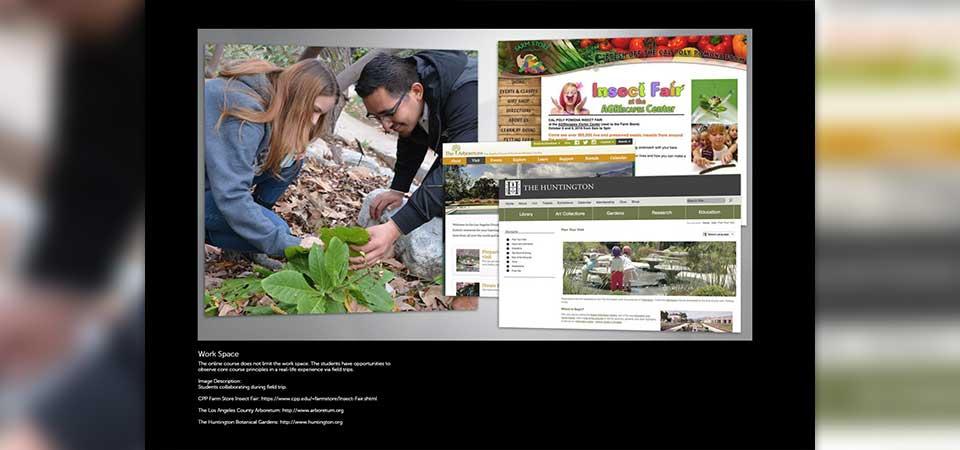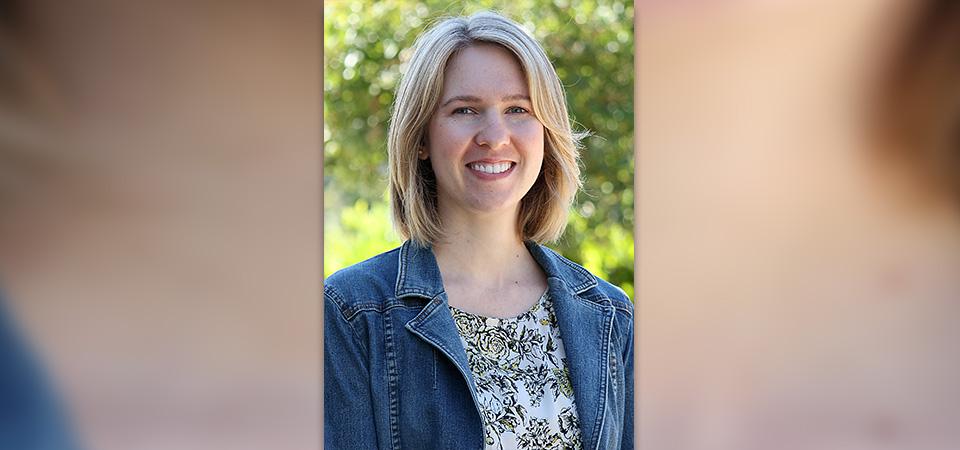Alum Wins "Wall of COOL" Honor from Cal Poly Pomona
Slideshow
This slideshow contains 3 slides that will change every 8 seconds. The first button is to play and pause the slideshow, followed by buttons to go to the previous slide, next slide, or choose individual slides.
-

Slide1
Screenshots of a video and a presentation that lecturer Amanda Marsh uses in her Plant Science 300 class. Marsh was selected as one of the university's 2017 "Wall of COOL" honorees for how she employs technology in her instruction.

A plant science lecturer and alumnus has been recognized on Cal Poly Pomona’s “Wall of COOL” for her work to incorporate technology to enhance her students’ learning experience.
Amanda Marsh (’08, ag biology; ’16, M.S. in agricultural science) teaches Plant Science 300, an upper-division general education course about insects and civilization that is offered every quarter at Cal Poly Pomona.
The course is fully online, with no required classroom meetings. Instead, students sign on to the university’s Blackboard learning management system.
“Students engage with the material of the course, complete assignments, and participate in group discussion on the Blackboard forum asynchronously – meaning they can access the course at any time, whatever works for their schedule,” Marsh says.
For her efforts, Marsh was selected as one of four Cal Poly Pomona instructors who were honored on eLearning’s “Wall of COOL.”
The Wall of COOL is a competitive award that the university’s eLearning office has given every year since 2009. It recognizes courses that effectively use technology to assist students’ learning and success. “COOL” stands for “Celebrating Outstanding Opportunities for Learning.”
The courses can be any format – online, hybrid, or technology-enhanced face to face – and instructors from any department or unit on the Cal Poly Pomona campus can apply. Award recipients’ work is showcased on the Wall of COOL website every year.
Marsh began teaching PLT 300 in 2011. Although she taught the course for several years, she knew that the course could be better, but she needed help getting started.
Starting in the 2015-16 academic year, Marsh worked with the university’s eLearning team of instructional designers and technical support staff to revamp the course.
Together they employed the “Quality Matters” rubric, a research-based, nationally recognized method for development robust, hybrid/online and technology-enhanced courses.
The approach ensures that educational goals are specified in each course, and that class activities and testing are aligned with those goals.
In Marsh’s online class, lectures are short, five to 15-minute videos recorded using PowerPoint and Adobe Presenter. She also uses short, screen-capture videos using Camtasia that are uploaded to YouTube with a pre-typed transcript. Students are quizzed weekly on course content, including lecture material, posted articles, and textbook readings.
Although it is an online course, students also attend an off-campus, insect-related event, conduct live interviews, and provide peer feedback through the class virtual discussion board.
“The assignments are designed to engage learners with the course material, each other, and the world around them in a flexible format that works with their schedule,” Marsh says. “Even unconventional students, like those who work full time or have day-time responsibilities, can succeed in this distance-learning course.”
Ironically, PLT 300 was the course that changed Marsh’s life. As an undergraduate, she took the course as a general education requirement and enjoyed it so much that she changed majors.
“It was all about bugs. I was hooked!” Marsh recalls. “It reminded me of how much fun it was as a kid to dig in the dirt and find rollie-pollies. I couldn’t believe people studied bugs for a living!”
“I’ve fully enjoyed coming full circle and teaching the course I loved so much,” she says. “I hope my students have enjoyed it too!”


